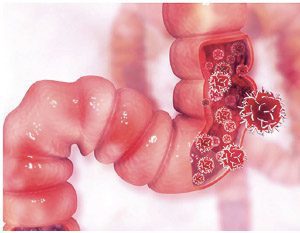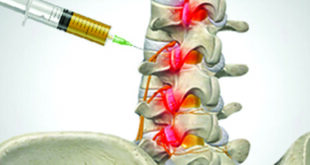 According to the National Institute of Health, in 2021, colorectal cancer is expected to cause 52, 980 deaths in the U.S. Coloncancer is the third most common type of cancer. If caught early on, it can be adequately treated. We’re also starting to see younger people suffer from this disease. There are typically no signs or symptoms of colon polyps or colon cancer. That’s why It’s critical to have colonoscopies every 10 years, or as recommended by your physician, starting at ages 45 to 50. If you’ve been diagnosed with colon cancer, your screenings will need to be more frequent.
According to the National Institute of Health, in 2021, colorectal cancer is expected to cause 52, 980 deaths in the U.S. Coloncancer is the third most common type of cancer. If caught early on, it can be adequately treated. We’re also starting to see younger people suffer from this disease. There are typically no signs or symptoms of colon polyps or colon cancer. That’s why It’s critical to have colonoscopies every 10 years, or as recommended by your physician, starting at ages 45 to 50. If you’ve been diagnosed with colon cancer, your screenings will need to be more frequent.
We caught up with one of BayCare Medical Group’s Colorectal Surgeons, Dr. Amy Curry, to find out more about prevention and treatment.
“Last month was Colorectal Cancer Awareness, but it’s essential for us to keep educating patients on the importance of screenings. This year’s statistics show that 1 in 24 people will develop colon cancer in their lifetime.” Dr. Curry further explained. “Colon cancer is the second leading cause of death in both men and women after lung and breast cancer.
“From research, we know that 68% of all colon cancer deaths could be alleviated with timely screenings. The issue with waiting until you have symptoms is that colorectal cancer has no symptoms until the disease is advanced.
“Polyps usually begin to develop between the ages of 45 and 50, and they are the cause of colon cancer. A colonoscopy can detect polyps, and we’re able to remove them before they become cancerous.
Colonoscopy
“Larger polyps can cause blood in the stool, but even they are typically asymptomatic. Colonoscopy allows us to see the entire lining of the colon. During a colonoscopy, then we insert a thin, flexible tube with a light and a camera at the tip through the anus and advance it through the entire length of the large intestine (colon). Using a variety of techniques, polyps that are found during this thorough examination can then be removed and collected through the colonoscope.
“The recommended age to begin colonoscopy is 50, but many societies across the board recommend screening at age 45. This is especially the case for those with a family history. If anyone in your family has had colon, rectal, ovarian, uterine, or breast cancer, you are considered at a higher risk.
Risk Factors
“As with most cancers, the risk factors are family history, excessive alcohol or tobacco use, a sedentary lifestyle, and a poor diet of processed foods and red meat, to name a few. With colorectal cancer, we know that diet plays a crucial role in prevention or making people more susceptible to the disease. It’s important to incorporate a lot of plant fiber, vegetables, fruits, and whole grains into your diet. These are well known to provide intestinal and colorectal health.
Early Diagnosis
“What I want more people to know is that if colorectal cancer is caught in stage I or Stage II, the survival rate is 90 to 95%. With early diagnosis, typically patients don’t need further treatment after surgical resection. In more advanced cases, we incorporate chemotherapy or radiation therapy and other interventional treatment if necessary.
Are there Alternatives?
“If patients cannot get a colonoscopy, there are secondary options such as virtual colonoscopy (CT Scan); however, most medical and health societies like the CDC only recommend virtual colonoscopy for those with severe heart disease or those on high levels of blood thinners. There are other options like the fecal testing cards, and while those have high false negative and false positive rates, they can detect microscopic amounts of blood in the feces, and they are better than nothing at all. Colonoscopy is the Gold Standard in diagnosis.
“Only 66% of people have been getting their screenings, but with education, every year those numbers increase. We’re hoping that more people will start to understand the importance of colonoscopies and how it saves lives and prevents lengthy procedures and recovery.”
Amy Curry, D.O., General Surgeon Specializing in Colorectal Cancer Dr. Amy Curry specializes in colorectal surgery and is board certified in general surgery. She earned her Doctor of Osteopathic Medicine from Philadelphia College of Osteopathic Medicine in Philadelphia, Pennsylvania. She continued her medical education by completing an internship and residency in general surgery at Philadelphia College of Osteopathic Medicine. She then completed a minimally invasive colon and rectal surgery fellowship at the Colon and Rectal Clinic of Orlando/Orlando Health in Orlando, Florida. Dr. Curry’s clinical interests include laparoscopic and robotic surgery, minimally invasive surgery, endoscopy, as well as diseases and disorders of the anus and rectum. She is a member of the American College of Osteopathic Surgeons, the American College of Surgeons and the American Society of Colon and Rectal Surgery.
Polyp cells can divide and proliferate quickly within the colon and rectum. Stop putting it off, schedule your colonoscopy.
Bay Care Medical Group
2000 Osprey Blvd., Suite 205, Bartow, FL 33830
Please call (863) 733-4390.
 Central Florida Health and Wellness Magazine Health and Wellness Articles of the Villages
Central Florida Health and Wellness Magazine Health and Wellness Articles of the Villages



